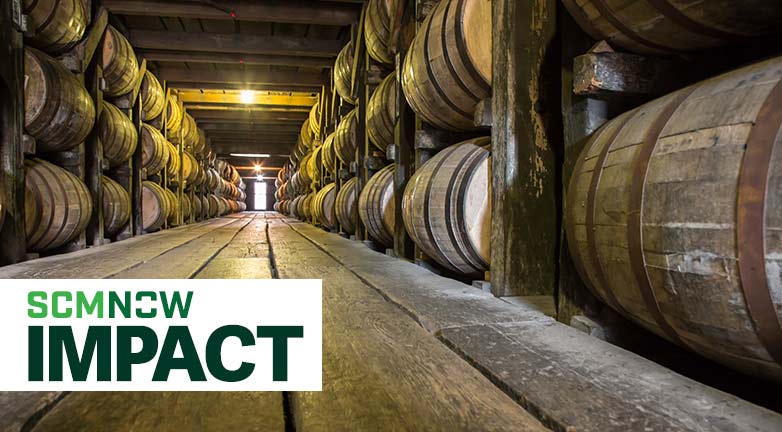From Our CEO

Unavoidable Disruption — and Why It’s a Good Thing
By ASCM CEO Abe Eshkenazi, CSCP, CPA, CAE
Disruptive innovation, a phrase coined in 1995 by Harvard Business School Professor Clayton Christensen, describes a product or service that initially takes hold at the bottom of a marketplace, but relentlessly expands until it eventually displaces established competitors. Some well-known examples include personal computers supplanting mainframes, mobile phones replacing hard-wired lines, and subscription streaming services overtaking video rental stores.
Additionally, a disruptive innovation often gives “a whole new population of consumers at the bottom of a market access to a product or service that was historically only accessible to consumers with a lot of money or a lot of skill,” Christensen says.
Disruptive innovation is happening right now in the American whiskey industry, thanks to a new wave of rapid-aging by craft distilleries. “Imagine that you run a business where, above all else, your customers value how long it takes to make your product. That, hands down, is your competitive advantage,” Chuck Swoboda writes for Forbes. “But then you discover that time no longer matters. A gang of new start-up companies comes along — and they’re making a similar product in a fraction of the time. It’s a classic industry disruption.”
Swoboda says established distillers such as Johnnie Walker, Knob Creek and Woodford Reserve age their whiskey in oak barrels or casks, often for decades. Conventional wisdom has been the longer it matures, the better it gets. But traditional companies are suddenly at risk of losing their edge. Innovations such as UV light that quickly breaks down alcohol molecules, intense heat that accelerates the chemical reaction process, and smaller barrels to increase surface area contact are enabling craft distillers to produce fine whiskeys in days, not years.
Currently, there are more than 1,500 of these companies in the United States — accounting for about 5% of sales nationwide — but with the ongoing popularity of the craft movement, that number is certain to grow. And these businesses are making excellent products: Some rapid-aged craft distillers have won gold medals; others are receiving honors such as being named Whiskey Innovator of the Year.
Changing the world
The APICS Product Life Cycle Operations Reference Model (PLCOR), a reference for innovation, product and portfolio management, includes strategies for coping with disruptive innovation. Best practices include supply chain risk management, bowtie risk management (an evaluation method used to analyze and demonstrate causal relationships in high-risk scenarios), product and portfolio risk management strategy implementation and analysis, maintaining a product and portfolio risk register, monitoring product and portfolio risk, and product and portfolio risk assessment.
In addition, the ASCM Enterprise Certification is a trailblazing corporate supply chain program and the first and only designation measuring social responsibility, economic sustainability and ecological stewardship. ASCM Enterprise Certification empowers organizations to reach goals, improve results and be more competitive in today’s global business world. This unique program can help your organization
- gain a competitive advantage by showcasing economic, ecological and ethical supply chain practices
- demonstrate transparency to prospective customers and consumers
- ensure suppliers align with your organization’s values
- manage accountability to support your organization’s ethical standards
- embrace a culture of social responsibility.
Get started today by completing the free, 30-minute Enterprise Supply Chain Maturity Assessment. ASCM will then aggregate data from participant responses to generate a benchmarking report with cross-industry information. Take this essential first step — the knowledge you gain will set you on your way toward creating a better world through supply chain.